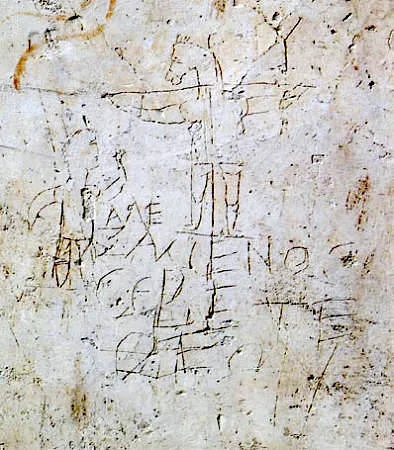Probably we all might have listened to this, "the Parable of the Sower" (Matthew 13:3-8; 18-23) by Jesus, either as a Sermon or in a Bible study. To recall the different places the seeds that were scattered, as the seeds dispersed by the sower - because the first area was the road where the seed won't germinate. The second, third, and the fourth areas were where the seeds germinated, but because of the type of land the seeds fell, some grew but didn't last long, some grew but because of the circumstances they were not fruitful, the fourth area was the good soil, the seeds that fell, took a deep root, grew well and were fruitful as well. If we look into the 13th Chapter of Matthew, we notice that Jesus had concentrated more on the peasant to reveal the Kingdom of Heaven.
The genealogy of Jesus (Matthew 1:1-17) says that, He is the descendant of King David. Upon reading 2Samuel 7:11,16, we will notice this everlasting promise. "I will establish the throne of his kingdom forever. Your house and your kingdom will endure forever before me; your throne will be established forever." We notice the same in the advent scence also in the Gospel according to Luke 1:32-33, "The Lord God will give him the throne of his father David, and he will reign over Jacob’s descendants forever; his kingdom will never end.” We know from Matthew 13:37, that the Sower is Jesus Himself, in other words, Jesus Himself is the peasant.
Why would Jesus instead of comparing Himself to a King, compared Himself with a peasant? There is a curious tale which supposed to have happened in the reign of Emperor Domitian (AD 81-96). Domitian wanted to be deified as one among Roman gods. He wanted to be worshipped as like the emperors before him. In his reign as an emperor he was more suspicious. He executed number of his senators, as he feared a coup. Maybe, I think he would have been suspicious of the descendants of David too. As part of his precautionary measures, he interviewed two of the members of the family of Jesus (Matthew 13:55,56) (probably the grandsons of His brother Judas, who wrote the epistle), because they claimed descent from the royal line of David. When they were brought before Domitian, he asked them whether they were descended from David, and they admitted it. Then he asked them what property they owned and what funds they had with them now. They replied that they had only 9000 denarii in total, half belonging to each. This also is not available in cash but was estimated value of 25 acres of land which their ancestors owned, from which they pay taxes and the rest to support themselves. They showed their hardened hands and their body as a proof for their hardship for their labour. When the Emperor asked about Jesus and His Kingdom, they explained that it was not of this world or anywhere on earth but would be established at the end of the world, when He would come in the glory to judge the living and the dead, giving every man payment according to his conduct. After interviewing them he found them to be simple peasants and quite uninterested in secular kingship or in a coup or in the formation of any kingdom. On their release they became leaders of Churches and lived into the time of Emperor Trajan (AD 98-117). [Eusebius Church History, Book 3, 19,20].
Is this what Jesus foresaw and compared Himself with a peasant? Don't know, but we can know of His intention when we read Matthew 9:35-38, 'Jesus went through all the towns and villages, teaching in their synagogues, proclaiming the good news of the kingdom and healing every disease and sickness. When he saw the crowds, he had compassion on them, because they were harassed and helpless, like sheep without a shepherd. Then he said to his disciples, “The harvest is plentiful but the workers are few. Ask the Lord of the harvest, therefore, to send out workers into his harvest field.”'
Jesus wants us to be His co-workers in the field of His Kingdom. In order to bring down His Kingdom among us (Matthew 6:10), He wants us to be hardened labour with Him. As said in Ephesians 4:11, we have offices of the prophets, the evangelists, the pastors and the teachers etc., Let's be faithful in the fields of our gifts, and strive to make the Kingdom of God a reality.
Let's conclude with Galatians 6:7-10, "A man reaps what he sows. Whoever sows to please their flesh, from the flesh will reap destruction; whoever sows to please the Spirit, from the Spirit will reap eternal life. ...as we have opportunity, let us do good to all people, especially to those who belong to the family of believers."
*All Scripture are from NIV.


